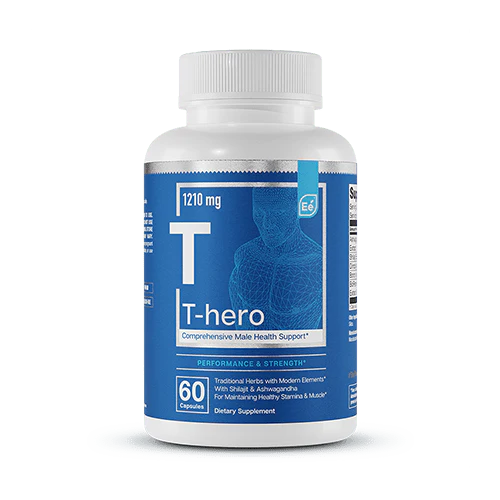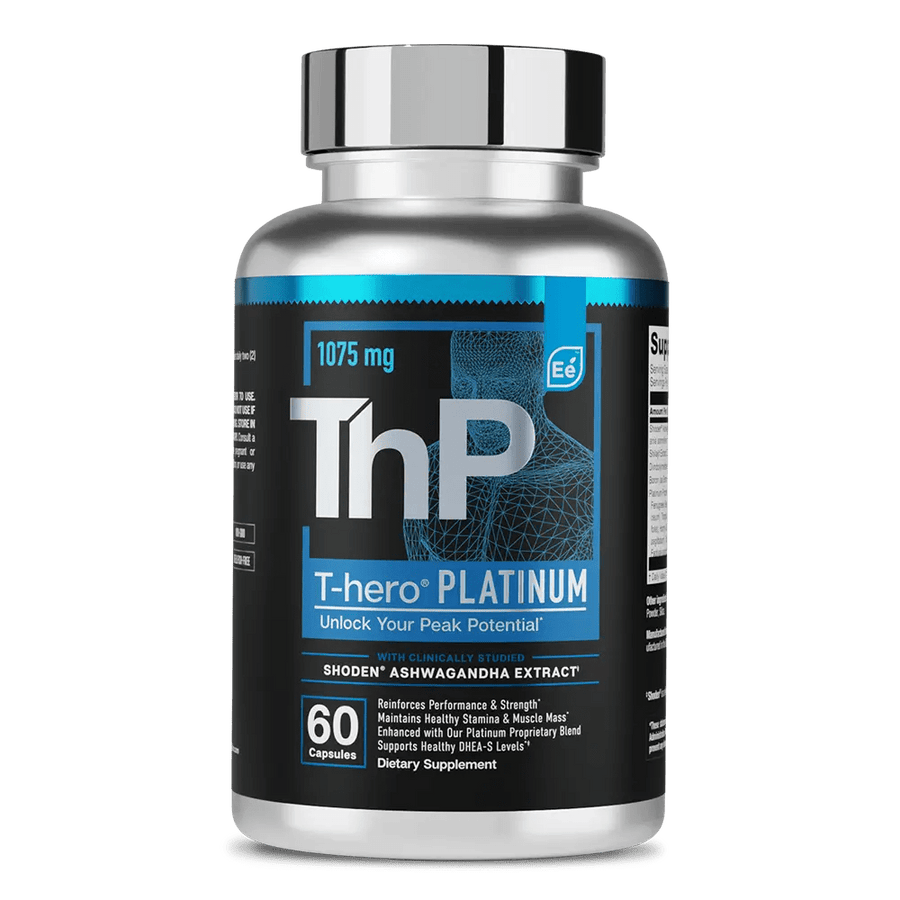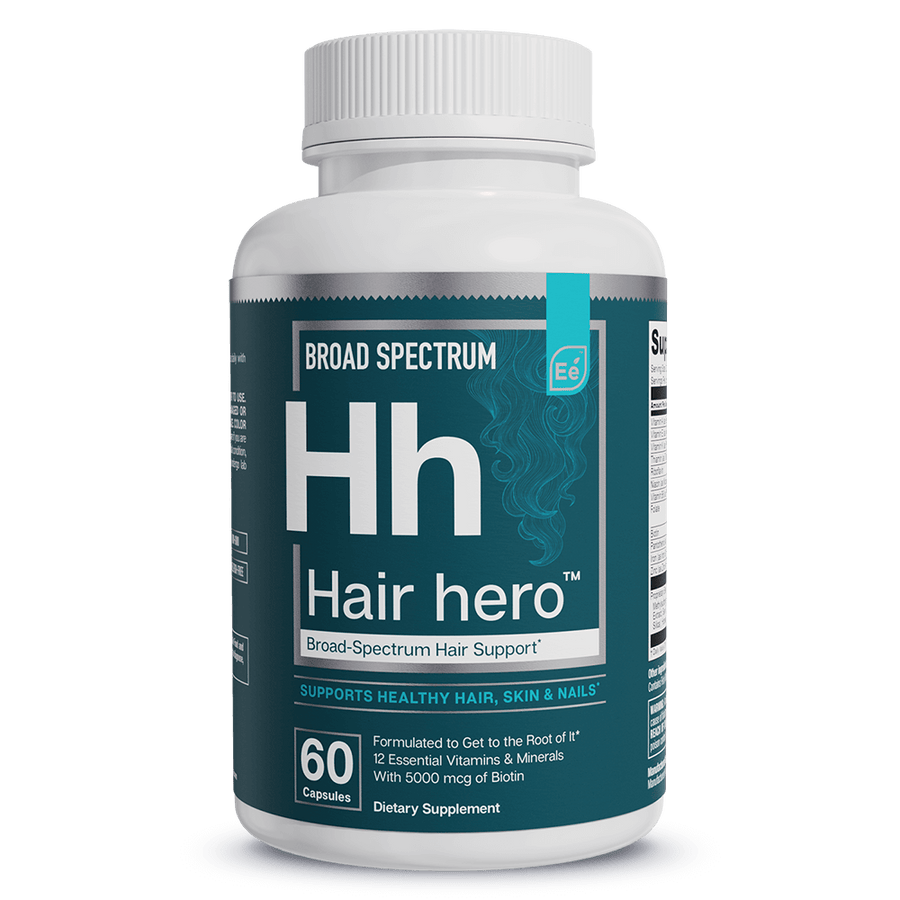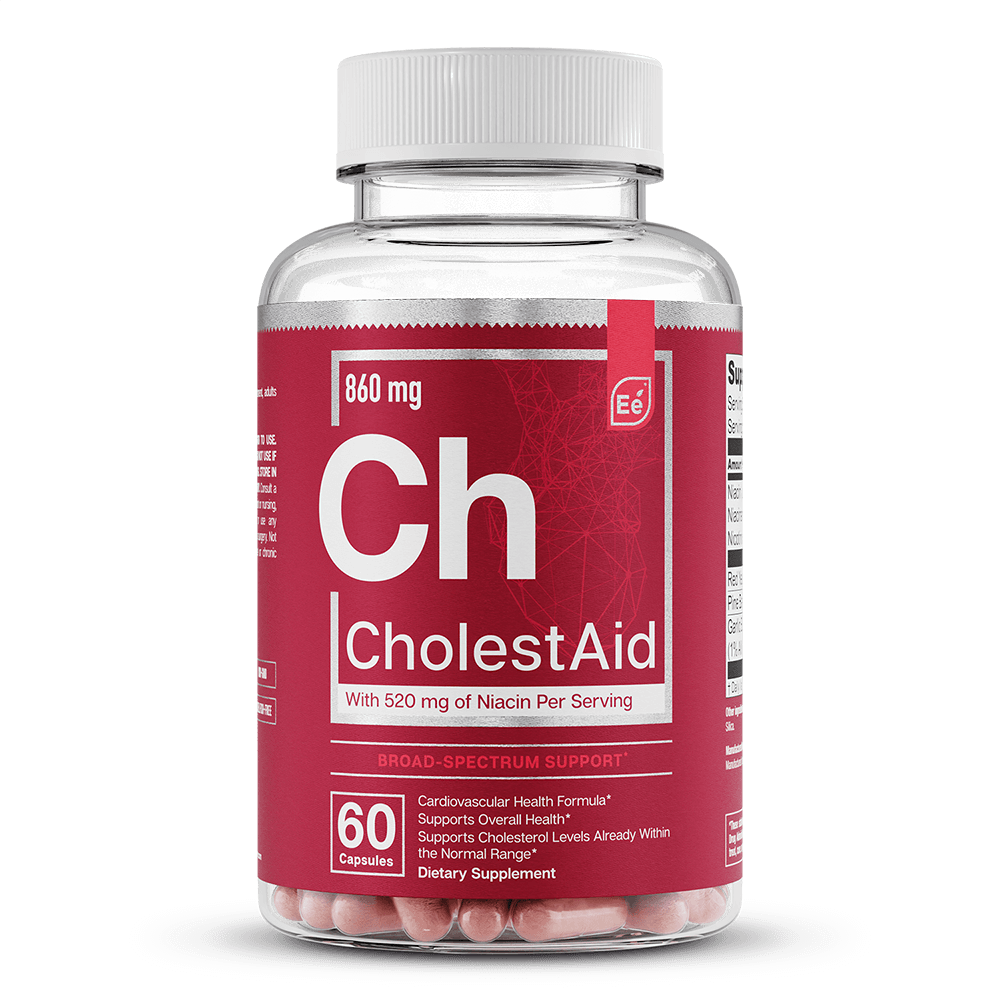Testosterone 101: A Guide to Understanding Testosterone
Many people equate testosterone with macho-type, aggressive, hairy meat-heads with bulging veins and abnormally large muscles. However, testosterone balance is not just about getting ripped and being able to grow a beard. Testosterone impacts our mood, confidence, how well we adapt to stress, and many aspects of our physical health. Keeping levels healthy is something that many men struggle with throughout their lifetime, and many lifestyle choices can have a big impact on keeping testosterone levels where they need to be.
Before we dig in, know that our guide to testosterone is focused on adult male health, but testosterone balance is an issue that applies to all humans, regardless of sex or gender.
What Is Testosterone?
Testosterone is an androgen hormone essential to many bodily functions, including sexual development, libido, and sperm production. It also affects bone density, heart health, fat metabolism, gaining and maintaining muscle mass, and the growth of facial and body hair. Although it is mainly produced in the testicles or ovaries, small amounts are also made in the adrenal glands. The signal to produce testosterone comes from the hypothalamus communicating with the pituitary gland.
Testosterone levels rise and fall throughout the stages of life. As puberty progresses, levels rise as the voice deepens, the genitalia begins to mature, and the development of body and facial hair begins. Levels peak in the late teens or early 20s, depending on the person.
It is common for testosterone levels to begin to drop after the age of 30 and when men enter fatherhood. Finding testosterone balance in different life stages may be difficult, especially as humans continue to lead more sedentary lifestyles.
The everyday habits you create for yourself will often contribute to your testosterone levels, so it is vital to set yourself up for success with a lifestyle that promotes optimal hormone levels in every stage of life.

What’s Considered Normal Testosterone Levels?
Healthy levels of testosterone for adult males after puberty should be within 300-1,000 ng/dL, but normal levels can also vary based on body mass index.
This range can be further broken down as researchers look closer to normal testosterone levels of younger men of various ages. A survey done in 2022 looked at age-specific testosterone levels to determine average ranges for different age groups.
Although these levels have not been adopted as the medical standard for diagnosing a testosterone deficiency or excess, if you are outside of these levels, you may want to discuss the results with a urologist.
Average normal testosterone ranges by age group:
♦ 20-24 years old 409-558 ng/dL
♦ 25-29 years old 413-575 ng/dL
♦ 30-34 years old 359-498 ng/dL
♦ 35-39 years old 352-478 ng/dL
♦ 40-44 years old 350-473 ng/dL
If you are considering checking your testosterone levels, speak with your doctor. Although at-home testosterone testing kits are available, these are not always reliable.
The time of day does affect this type of test, and it is recommended to take a testosterone test between 7-10 am. You may even need to take the test multiple times to get an accurate reading.
Blood tests are standard, but salivary tests are also becoming available.

What Role Does Testosterone Play in Men’s Health?
When most people think of testosterone, they may be thinking only of its role in sexual performance or muscle building, but it is intertwined with the maintenance of various metabolic functions, organ systems, and even aspects of our personality. Of course, it jumpstarts puberty, but testosterone is important throughout life, and too much or too little can have a significant impact on long-term health.
Health benefits of testosterone:
♦ provides a protective effect for the heart and arteries
♦ may beneficially affect cholesterol levels and blood pressure levels
♦ may support glucose metabolism
♦ helps to maintain lean body mass
♦ benefits bone density
♦ may help to increase red blood cells
♦ supports healthy sperm production
♦ promotes muscle growth and strength
♦ can support mood health
♦ has protective benefits for the brain and may benefit memory
♦ promotes healthy sexual function

How to Maintain Healthy Testosterone Levels
There are a lot of myths and inaccurate information out there about how to maintain healthy testosterone levels, especially from testosterone supplement companies. There is, however, truth to the idea that many supplements, nutrients, foods, and lifestyle changes can support the body’s production of testosterone.
Herbs and supplements that may benefit testosterone levels
♦ nettle leaf, root & seeds
♦ DIM
♦ ashwagandha
♦ shilajit
♦ saw palmetto
♦ fenugreek
♦ tongkat ali
♦ pine pollen

Essential nutrients for healthy testosterone levels
♦ zinc
♦ magnesium
♦ vitamin D
♦ boron
♦ L-carnitine
♦ B vitamins
♦ vitamin K
Foods that support testosterone production
♦ pumpkin seeds
♦ ginger
♦ leafy greens
♦ avocados
♦ antioxidant-rich berries
♦ grapes
♦ pomegranates
♦ dairy products
♦ dark chocolate
♦ eggs
♦ red meat
♦ almonds
♦ bananas
♦ salmon
♦ broccoli family vegetables such as cabbage, kale, and cauliflower
Lifestyle tips for maintaining healthy testosterone levels
♦ keep stress levels at a minimum
♦ maintain a healthy weight
♦ reduce exposure to BPA and other xenoestrogens
♦ get plenty of high-quality sleep
♦ drink less alcohol
♦ eat a healthy diet with plenty of protein, vegetables, and healthy fats
♦ reduce foods that spike blood sugar levels
♦ participate in forms of vigorous exercise, especially weight lifting (although too much can decrease levels)
♦ get sunlight every day

How to Maintain Healthy Testosterone Levels
Maintaining healthy testosterone levels throughout your life may require a few changes to your diet and lifestyle, but they are all things that are good for other aspects of your health. Although some people may see great results from adding specific supplements to their diet, most likely, you will need to take a well-rounded approach to keep your testosterone within healthy ranges.
Ensuring your body has the foundational nutrients it needs will enable it to produce testosterone adequately.

Keeping stress levels low, eating healthy foods, getting sunshine, and plenty of exercise are essential to good health and will also help to support your body in producing enough testosterone.
It’s a great idea to get your testosterone levels checked before starting a new supplement or routine. Of course, always speak to your doctor before starting a new routine.
Finding out where you are starting from will help you evaluate later whether it has any effects. Everybody is different, and you may need a unique approach to keep your testosterone levels pumping.
The Essential Element
Hormone levels can wax and wane throughout the day as well as throughout our lives. By taking a few extra steps to keep your testosterone levels just right, you can support your health in numerous ways.
Keeping your hormone levels balanced will help you keep your energy levels up, maintain endurance, support workout performance, and help you reach your full potential.
At Essential elements®, a part of our mission is to provide you with information you can rely on to make decisions about your health. We provide foundational nutrients and workout support products inspired by science to keep you moving toward your fitness goals and athletic development.





